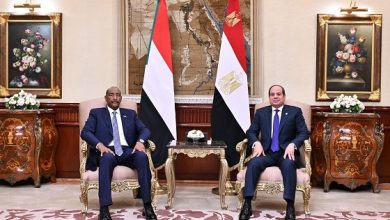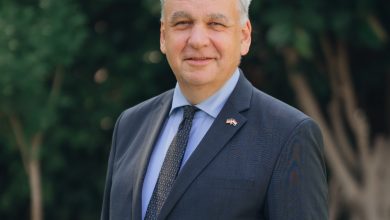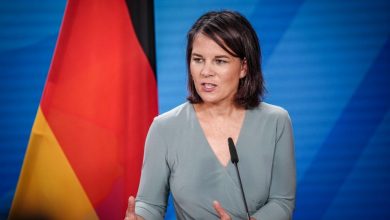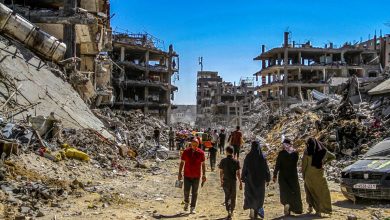GIZ Egypt: Promoting Inclusive and Sustainable Urban Development
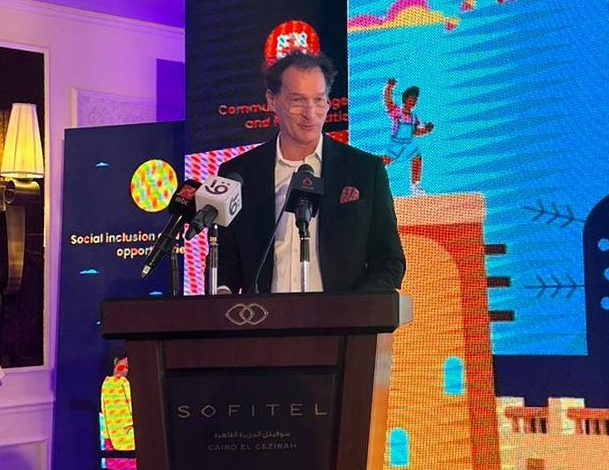
By: Nessma Youssef
The German Agency for International Cooperation (GIZ-Egypt) recently organized a distinguished exhibition on inclusive and sustainable urban development. The event saw the participation of Mario Zander, Director of Middle East Affairs at the Federal Ministry for Economic Cooperation and Development, along with numerous prominent figures.

Event Themes: The event, organized by GIZ in collaboration with UN-Habitat in Cairo, revolved around the theme “Inclusive and Resilient Cities: Towards Fair Urban Transformation in Egypt.” Discussions covered crucial topics such as making cities livable for all residents, the role of inclusivity and sustainability in urban development, and how governments can better collaborate with civil society and local communities in urban development projects.
Objectives of the Event: The primary aim of the event was to initiate a dialogue among various stakeholders about the opportunities and challenges related to urban expansion in Egypt. The goal was to achieve social justice and climate resilience, ultimately improving living conditions for city residents.
German-Egyptian Cooperation Projects: GIZ, in collaboration with the EU delegation and Egyptian partners from the Ministries of Social Solidarity, Housing, and Environment, showcased several successful joint projects as models of best practices. These included “Capacity Building through Urban Infrastructure Development,” the “National Solid Waste Management Program,” and “Equal Opportunities and Social Development.”
Mario Zander’s Statements: During the event, Mario Zander emphasized, “The German government has long been committed to improving living conditions in Egypt’s informal settlements. Our strong cooperation with the Egyptian government across various projects has yielded significant achievements, positively impacting the lives of many Egyptians in urban areas.” He also thanked all partners for their dedication to enhancing the environmental, infrastructural, and social framework for Egyptian citizens.
Urban Development in German Development Cooperation: The German Embassy in Cairo highlighted that urban development is traditionally a key focus of German development cooperation and a central theme of the “BMZ 2030” strategy by the Federal Ministry for Economic Cooperation and Development. Projects such as “Equal Opportunities and Social Development” and “Capacity Building through Urban Infrastructure Development” exemplify the long-standing successful cooperation between Germany and Egypt. Germany places local residents’ needs at the center of its sustainable urban development efforts, emphasizing that sustainable solutions are only achievable through dialogue, cooperation, and participation.
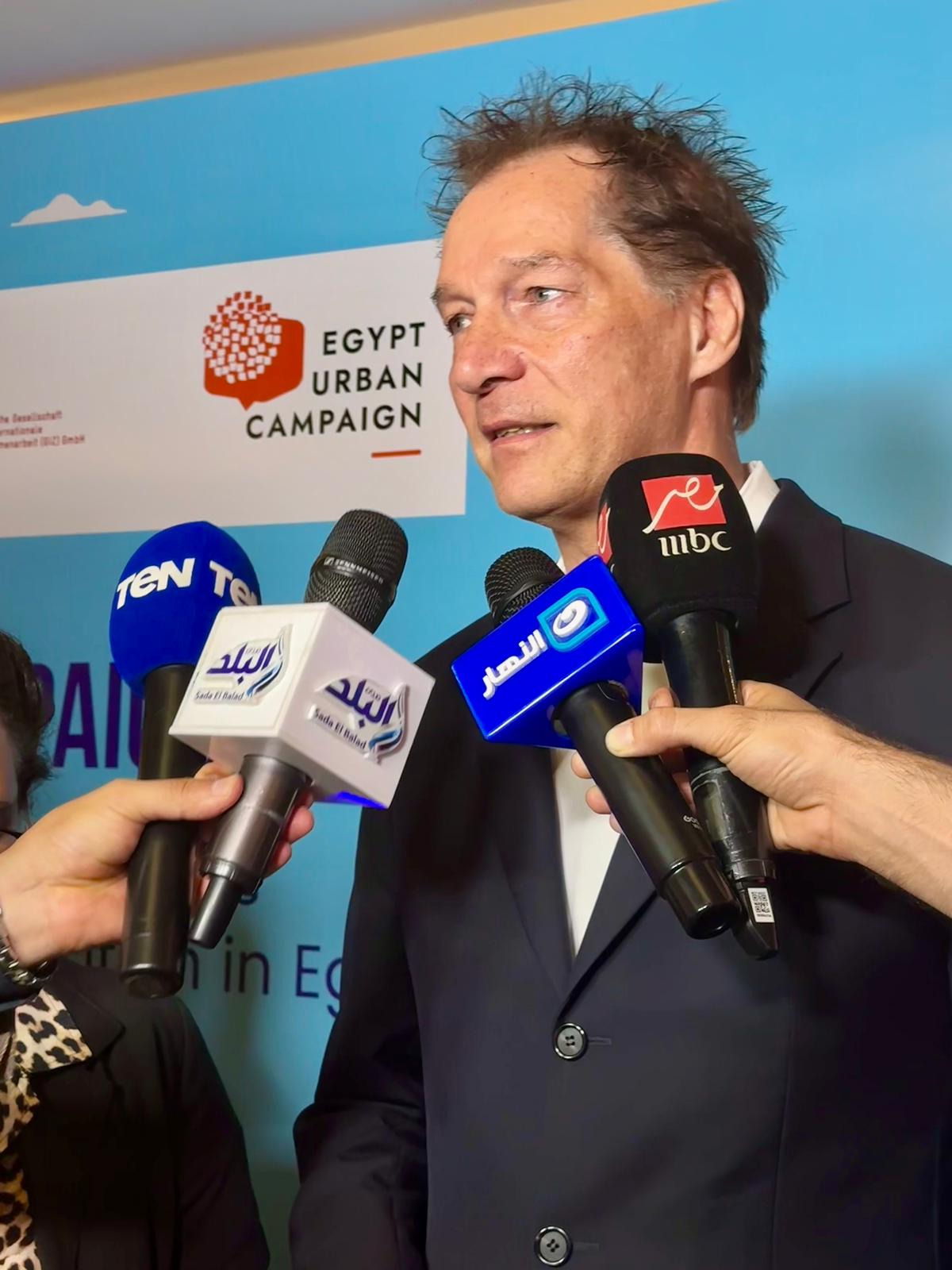
About GIZ
Agency Overview: The German Agency for International Cooperation (GIZ) is an international development organization committed to promoting sustainable development through international cooperation. Established in January 2011, GIZ merged three German organizations working in development and international assistance, operating under the Federal Ministry for Economic Cooperation and Development (BMZ).
Mission and Objectives: GIZ’s mission is to improve living conditions in developing countries by providing technical and financial support. The agency focuses on achieving sustainable development across various fields, including education, health, environment, infrastructure, and agriculture. GIZ also aims to promote democracy, human rights, and institutional capacity building in partner countries.
Areas of Work: GIZ operates in several critical areas:
- Urban Development: Improving infrastructure and services in cities to ensure a better quality of life for residents.
- Climate Change: Implementing projects to mitigate and adapt to the impacts of climate change.
- Education and Vocational Training: Enhancing individuals’ skills through specialized educational and training programs.
- Health: Supporting health systems to ensure healthcare for all.
- Water and Sanitation: Executing projects to improve water supply and sanitation services.
- Agriculture and Rural Development: Promoting food security and developing rural areas.
Activities and Projects: GIZ operates in over 120 countries worldwide, implementing numerous development projects in collaboration with local governments and international partners. These projects include:
- Solid Waste Management Program in Egypt: Aims to improve solid waste management and enhance environmental awareness.
- Education and Vocational Training Program in Jordan: Seeks to improve education quality and vocational training to empower youth to enter the job market.
- Renewable Energy Projects in Africa: Aims to promote the use of renewable energy and reduce dependence on fossil fuels.
Partnerships and Cooperation: GIZ collaborates with a wide range of partners, including governmental and non-governmental organizations, international institutions, and private companies. This cooperation enables the implementation of comprehensive and effective development projects.
Funding: GIZ receives funding from the German government and additional funds from international institutions and other partners. This funding supports the execution of a wide range of development projects globally.
GIZ’s Activities in Egypt
Introduction: The German Agency for International Cooperation (GIZ) is a leading organization in international development, actively implementing development projects in many countries, including Egypt. Since starting its operations in Egypt, GIZ has executed numerous projects aimed at improving living conditions and promoting sustainable development.
Areas of Work in Egypt: GIZ focuses on several critical areas in Egypt:
- Urban Development: GIZ enhances urban development by improving infrastructure and services in cities. A notable project in this field is the “Inclusive and Sustainable Urban Development” project, which aims to create a sustainable and inclusive urban environment for all.
- Waste Management: The “National Solid Waste Management Program” is a key GIZ project in Egypt, aiming to improve solid waste management and reduce its environmental impact. The program includes capacity building for workers in this sector and raising environmental awareness among the population.
- Climate Change and Renewable Energy: GIZ promotes the use of renewable energy and mitigates the impacts of climate change. This includes projects supporting solar energy and developing sustainable energy solutions for rural communities.
- Education and Vocational Training: GIZ supports education and vocational training in Egypt through various programs designed to improve education quality and increase job opportunities for youth. An example is the “Education for Employment” project, which aims to equip youth with the necessary skills for the job market.
- Water and Sanitation: GIZ works to improve water supply and sanitation services in Egypt by implementing projects aimed at building and developing infrastructure in this sector. These projects include improving water quality and increasing access to sanitation services in rural areas.
Examples of Successful Projects:
- Kitchener Drain Project: This project aims to reduce pollution in the Nile Delta and improve water management and sanitation. Funded with 214 million euros, the project includes establishing wastewater treatment plants along 70 kilometers near the Mediterranean Sea.
- Cairo Metro Line 3 Extension: GIZ provided 600 million euros to extend Cairo Metro Line 3, facilitating daily transport for millions and providing a safe and sustainable transportation method.
- Support for Migrant Entrepreneurs: GIZ offers microloans to migrant entrepreneurs, helping them establish their businesses and improve their living conditions. These loans particularly target vulnerable groups, including women and youth.
Collaboration with Local and International Partners: GIZ in Egypt collaborates with a wide range of partners, including the Egyptian government, the European Union, UN organizations, and the private sector. This collaboration enables the implementation of comprehensive and effective projects that meet local needs and promote sustainable development.
Conclusion: The German Agency for International Cooperation (GIZ) plays a pivotal role in promoting sustainable development in Egypt through a wide range of projects aimed at improving infrastructure, enhancing education, managing natural resources, and supporting vulnerable groups. Through its collaboration with local and international partners, GIZ contributes to creating a sustainable and inclusive environment that meets the needs of residents and ensures a better future for generations to come.
For more information about GIZ’s projects in Egypt, visit the official GIZ website.
